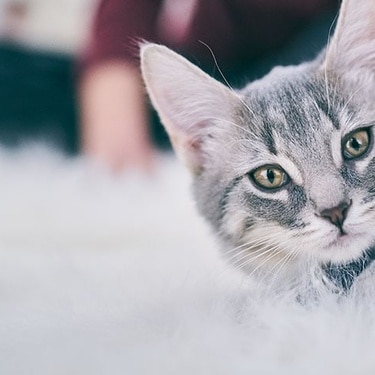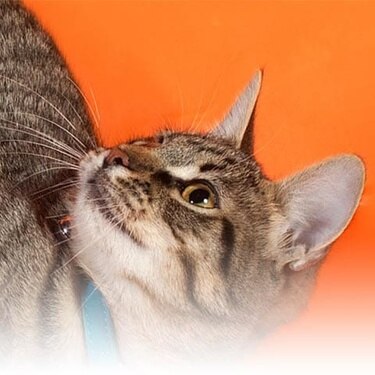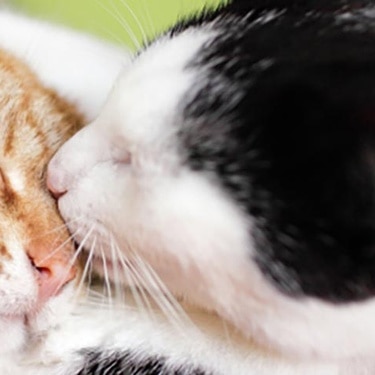
-
Find the right food for your petTake this quiz to see which food may be the best for your furry friend.Find the right food for your petTake this quiz to see which food may be the best for your furry friend.Health CategoryFeatured products
 Adult Small Bites Chicken & Barley Recipe Dog Food
Adult Small Bites Chicken & Barley Recipe Dog FoodSupports lean muscle for dogs who prefer smaller kibble
Shop Now Adult 7+ Small & Mini Chicken & Brown Rice Recipe Dog Food
Adult 7+ Small & Mini Chicken & Brown Rice Recipe Dog FoodFor the unique nutritional needs of mature Small & Mini dogs
Shop Now Adult Small & Mini Chicken & Brown Rice Recipe Dog Food
Adult Small & Mini Chicken & Brown Rice Recipe Dog FoodFor the faster metabolism of Small & Mini dogs
Shop NowFeatured products Adult Indoor Savory Chicken Entrée Cat Food
Adult Indoor Savory Chicken Entrée Cat FoodPrecisely balanced nutrition for indoor cats with the delicious taste of savory minced chicken
Shop Now Kitten with Salmon
Kitten with SalmonPrecisely balanced nutrition with the delicious taste of minced salmon to help build immunity and a healthy digestive system
Shop Now Adult Perfect Weight Salmon & Vegetable
Adult Perfect Weight Salmon & VegetableOver 70% of cats lost weight within 10 weeks when fed this nutrition
Shop Now -
DogCat
- Cat Tips & Articles
-
Health Category
- Weight
- Skin & Food Sensitivities
- Urinary
- Digestive
- Kidney
- Dental
- Serious Illness
-
Life Stage
- Kitten Nutrition
- Adult Nutrition
Featured articles The Right Diet For Your Pet
The Right Diet For Your PetLearn what to look for in healthy pet food & nutrition, including ingredients, quality of the manufacturer, your pet's age, and any special needs they have.
Read More Water
WaterWater is the most important nutrient of all and essential for life. Animals can lose almost all their fat and half their protein and still survive, but if they lose 15% of their water, it will mean death.
Read More Pet Food Storage Tips
Pet Food Storage TipsWhere you store your cat and dog food can make a big difference in the quality and freshness once it is opened. Here are some common questions and recommendations for optimal storage for all of Hill’s dry and canned cat and dog food.
Read More -


Your mother has probably told you this countless times: fish is good for you. But is feeding fish to cats a good idea? Well recent research is suggesting that it probably is. And that's great news for cats, as most felines love the taste of fish.
Are All Fish Created Equal?
You might be tempted to think that if fish is so great that you can just dish up the odd treat of a little Dover Sole, lightly steamed, or poached in milk. But if you really want your cat to receive the maximum nutritional benefit from fish, read on…
Like any other ingredient, fish should be given as part of a balanced diet. And there is mounting evidence to show that you can get a lot of benefit from eating just some particular nutritional components of fish.
First off, fish is a great source of protein, whether you are a cat, or a cat owner. That means that pound for pound, it supplies a good amount of protein that is very usable by cats' bodies. It has the right amino acids - the components of protein - in the ratios we need them, although it's not going to be an exact match.
On the negative side, some kinds of fish can also destroy certain vitamins. So, feeding fish to cats is a bit of a science, if nutritional balance is to be achieved. Another problem for cat owners is that cat food that has a lot of fish in it, frankly, smells horrible and can linger!
Technology
Thankfully that's where technology can lend a helping hand. By extracting the best nutrients from the fish and adding them to cat foods, your cat can get the useful health benefits whether they eat their favourite chicken, beef or lamb varieties.
Even if you don't have a degree in fishmongery, you would probably suspect that white fish, such as sole and cod, is going to differ from oily fish, such as Mackerel and Tuna. In fact, if we were to isolate just one 'super-nutrient' that can be found in fish, then it has to be fish oil.
Your natural inclination may be to opt for white fish, but these contain very little of the valuable oils, so, it's the oily fish that should be your first choice.
The Healthy Option
The studies that scientists are publishing about the benefits of fish oils are just astounding. Want your cat to have good eyesight? Try fish oils. Your old cat is stiffening up? Try fish oils. Wish your cat was a bit brainier? Try fish oils.
Veterinary surgeon, Libby Sheridan from Hill's Pet Nutrition explains it like this, "There is a particular fish oil called DHA, an omega 3 fatty acid, that we know is involved in neurological development - that's development of the brain and its connections. Although some of that development occurs while the kitten is still in its mother's womb, it's clear that some changes are still occurring after birth.


Tasty Tips
That makes sense because the brain has to remain 'plastic' for a time to encompass all the information being assimilated from the animal's surroundings as they see, hear, touch and experience a whole raft of new things. We now supplement all our kitten foods with DHA, the nutrient that helps to power this ongoing development. Everyone can have a more alert and adaptable cat, just by feeding their kitten correctly during the first few months.
A question of balance
In the body there is a balancing act going on with respect to these special kinds of fatty acids. There are two broad types, called omega 6 and omega 3.
Valuable forms of omega 3's are found in some vegetable oils, such as linseed (flax) and fish, particularly oily fish. Each group holds the other groups effects in check to some extent. So, by giving more of one kind and less of the other, different effects may be seen. It is generally thought that a diet that is high in animal fats will result in more omega 6 compared to omega 3 and that there might be scope for pets (and possibly people) to eat a lot more omega 3s and stay healthy.
A few words of caution, however: don't be tempted to just give extra fish oil to your cat. Too much of any one nutrient can throw the body out of kilter and cause problems. Get veterinary advice before supplementing a diet, especially if your cat is ill. In most cases there will be a correctly formulated supplement that your vet can prescribe, or a suitable veterinary formulated special diet that can meet your pet's specific needs for all nutrients and that is tailored for that medical condition.
For owners of healthy cats, Libby Sheridan has some sensible advice, "When shopping for cat food don't get too distracted by the glamour-puss on the label. Look for the labels that say the food has added fish oils: we're so convinced of the validity of this research that we made the decision to supplement all our feline dry diets. And always buy a reputable brand where you know the right oils have been used, sourced from the right kinds of fish from clean, unpolluted waters."
Just like your mother told you: fish is the healthy option!
Related products

Over 70% of cats lost weight within 10 weeks when fed this nutrition

Precisely balanced nutrition with the delicious taste of minced salmon to help build immunity and a healthy digestive system

Over 70% of cats lost weight within 10 weeks when fed this nutrition

Precisely balanced nutrition for indoor cats with the delicious taste of savory minced chicken
Related articles

HillsPet Nutrition provides information on proper nutrition, fitness and special needs in keeping your cat healthy and happy.

As a responsible pet owner you owe it to yourself and your cat to understand problems associated with overweight cats.

Get helpful information on proper feline oral healthcare and why it's so vital to take care of your cat's teeth.

Being overweight puts a cat at risk for developing many serious health issues. Weight gain indicates an increase in body fat and usually results when your cat eats too much and exercises too little.

Put your cat on a diet without them knowing
Our low calorie formula helps you control your cat's weight. It's packed with high-quality protein for building lean muscles, and made with purposeful ingredients for a flavorful, nutritious meal. Clinically proven antioxidants, Vitamin C+E, help promote a healthy immune system.
Put your cat on a diet without them knowing
Our low calorie formula helps you control your cat's weight. It's packed with high-quality protein for building lean muscles, and made with purposeful ingredients for a flavorful, nutritious meal. Clinically proven antioxidants, Vitamin C+E, help promote a healthy immune system.


